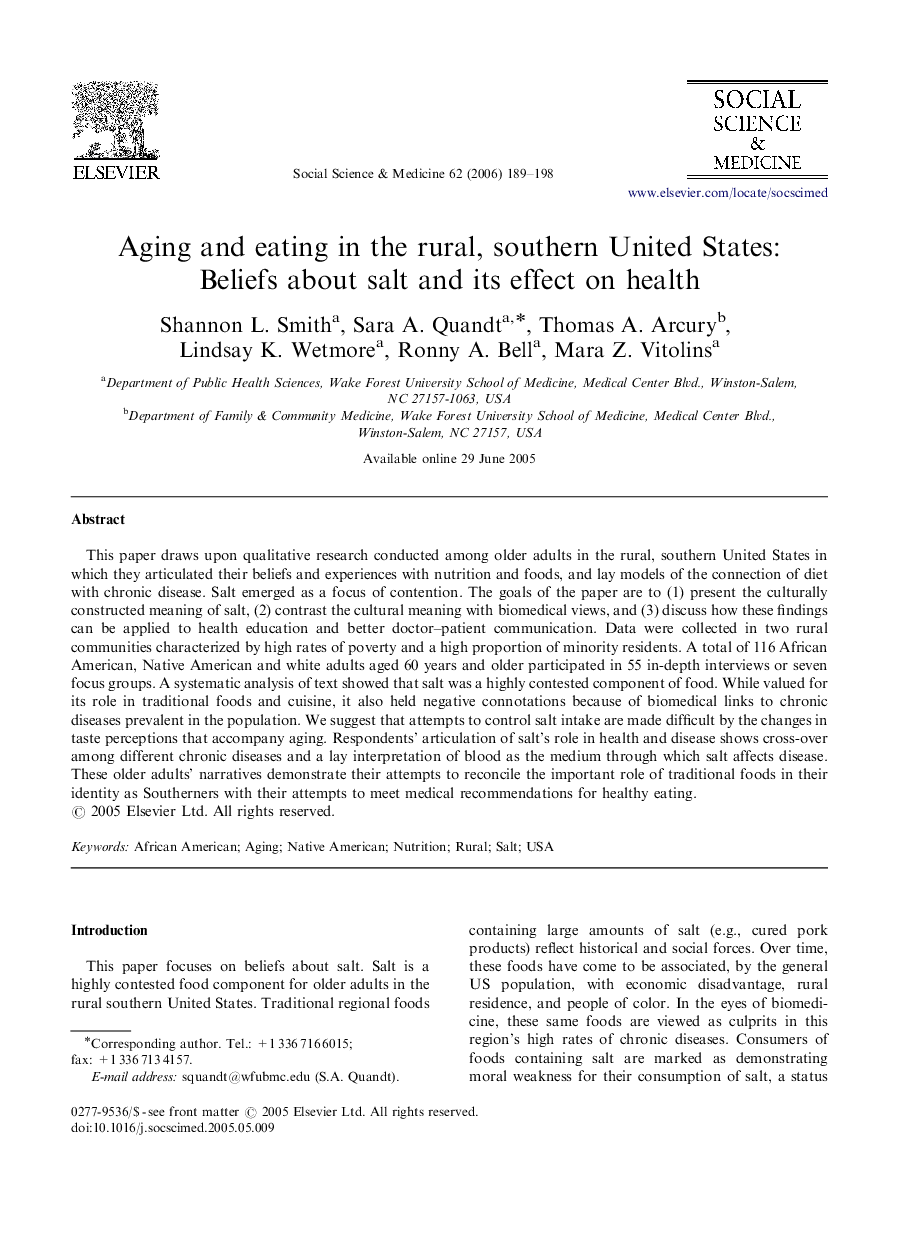| Article ID | Journal | Published Year | Pages | File Type |
|---|---|---|---|---|
| 955175 | Social Science & Medicine | 2006 | 10 Pages |
This paper draws upon qualitative research conducted among older adults in the rural, southern United States in which they articulated their beliefs and experiences with nutrition and foods, and lay models of the connection of diet with chronic disease. Salt emerged as a focus of contention. The goals of the paper are to (1) present the culturally constructed meaning of salt, (2) contrast the cultural meaning with biomedical views, and (3) discuss how these findings can be applied to health education and better doctor–patient communication. Data were collected in two rural communities characterized by high rates of poverty and a high proportion of minority residents. A total of 116 African American, Native American and white adults aged 60 years and older participated in 55 in-depth interviews or seven focus groups. A systematic analysis of text showed that salt was a highly contested component of food. While valued for its role in traditional foods and cuisine, it also held negative connotations because of biomedical links to chronic diseases prevalent in the population. We suggest that attempts to control salt intake are made difficult by the changes in taste perceptions that accompany aging. Respondents’ articulation of salt's role in health and disease shows cross-over among different chronic diseases and a lay interpretation of blood as the medium through which salt affects disease. These older adults’ narratives demonstrate their attempts to reconcile the important role of traditional foods in their identity as Southerners with their attempts to meet medical recommendations for healthy eating.
